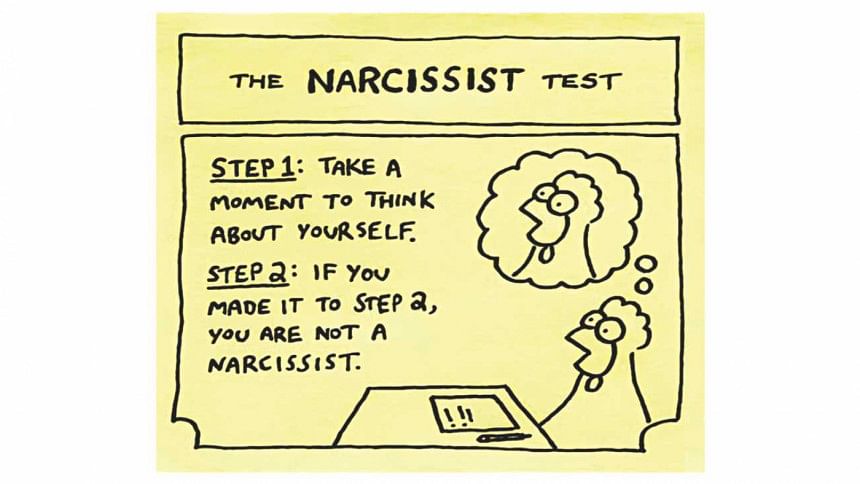Why We Are Obsessed With Personality Tests

My year started with a terrible week – and it had much more to it than just Donald Trump being elected.
From the first of January until the ninth, I could not muster the courage needed to get out of bed to perform more than just the barest of my human functions – because it was the week of the mercury retrograde. And as an ENTP/A, Type 5w4, Slytherin, Melancholic, Libra (sun), this week was a dangerous one, but especially dangerous for me and people with my personality type.
I also know that had I been less obsessed with my personality type, I might have gotten more work done, but that is another thing entirely. (ENTP's are known to be lazy.)
Our obsession with our personalities started much earlier than we may think – it started with the common habits of our star signs and developed into why we are in the Hogwarts house that we are in, to realising that there's a certain type of person that prefers the eleventh doctor more than the tenth. Based off of Carl Jung's typological theory, Katherine Cook Briggs and her daughter Isabel Briggs Myers developed, according to Wikipedia, an introspective self-report questionnaire or a personality test, for us normal folk, that sorts you into one of sixteen different personality types that make up the population of the world, and in recent years this test has been gaining popularity.
According to Pottermore, bravery and chivalry maketh a Gryffindor; the ancient four temperaments that Hippocrates used says people with a Choleric personality are short-tempered and irritable, and according to Buzzfeed's What Type Of Cake Are You, if you like Golden Retrievers more than other dogs you are probably a strawberry shortcake. But why does this matter to us?
Personality tests offer a useful, simple paradigm to better understand ourselves, and we believe them, because they are based on facts well researched, but why do we delve deeper? What is the point of knowing what type of cake I am? Well, it makes for an excellent conversation starter – maybe because people want to be around people who seem to have themselves figured out, someone who can tell them more about themselves maybe.

It is a heady feeling, knowing that you can compartmentalise parts of yourself just to prove that you are a complex, three-dimensional individual. Maybe you are constantly aware that your drive may result from Capricorn being your Mars sign, or that your Melancholic personality type is what makes you so analytical, but knowing these things only proves how complex you really are. Answering the questions that lead us to finding out what type of anything we are is what gives us that thrill – to think of ourselves as the subject, to be interesting.
Personality tests and sorting quizzes give us more than what we already know. They shed light on parts of us that we may overlook, and in a way they ground us, make us more aware of ourselves and more ourselves than we were before we took the test. We come off stronger, a more intense version of ourselves once we begin to appreciate the different facets that make up who we are. They make us seem more complex to ourselves, maybe even better-rounded. And they sure as hell make introducing yourself easier.
Although, personality tests satisfy a part of us we did not know existed before we stumbled over them – sometimes, we have to admit we do things without rhyme or reason, completely atypical to our personalities. Once you have discovered personality tests though, these instances gain a new sort of novelty, wherein you surprise yourself and find that you truly might be more than even you, or anybody else can figure out. There is a sense of comfort that comes from that fact alone.
One phrase you will run into over and over again when doing research on personality tests and quizzes is "psychological selfie", which is especially relevant these days and refers strongly to our need to see ourselves better, and mostly to see ourselves better. According to my own Myers-Briggs results as mentioned before, ENTPs are the lazy geniuses of the 16 personalities. Being lazy has never helped anyone, and I am no exception. And like most people, I tend to glaze over the lazy as the genius shines at me from its perch. It almost makes it okay to be lazy, if you're also, said genius. Almost.
While we could dig and dig, and never find solid ground beneath our obsession with knowing how we truly are, and how we appear, this curiosity in itself may be attributed to a certain type of person. As anything at all could. Knowing your own, and other types well makes you an interesting person to other people – because you can tell them something they might not know about themselves.
These tests and quizzes work like people might, seeing you for you, in a different light. And it pleases all of us to know that we may appear sanguine to others, pretty much opposite to the raucous white noise inside our heads. We want to be seen.
Even if that means knowing what sort of cheesecake you are. (Blueberry).
Tabeya carries two sets of pyjamas and searches for the perfect pair of anthropomorphic Musa acuminata at the Kawran Bazar market, every morning. To join her quest, send mail to [email protected]

 For all latest news, follow The Daily Star's Google News channel.
For all latest news, follow The Daily Star's Google News channel. 



Comments